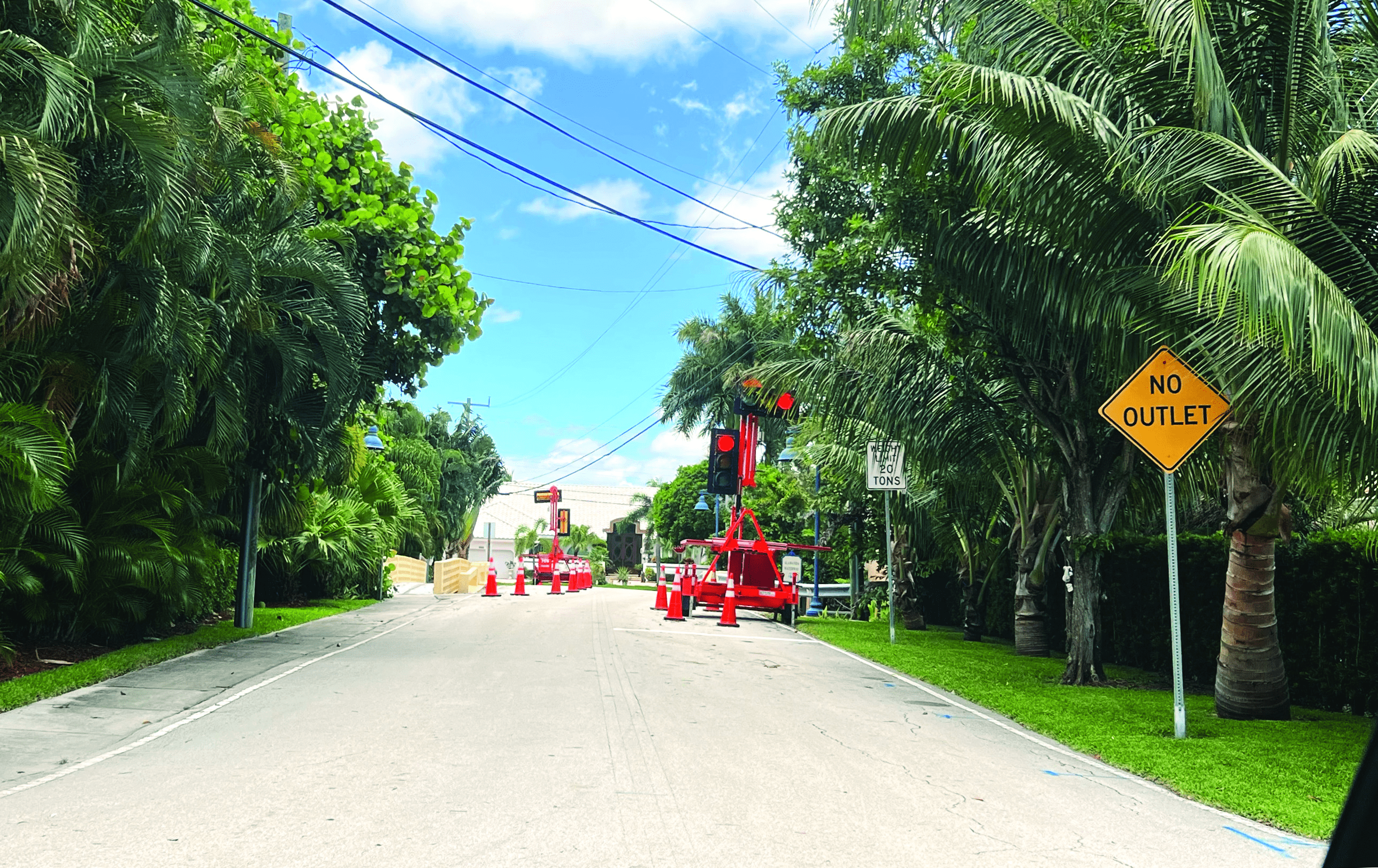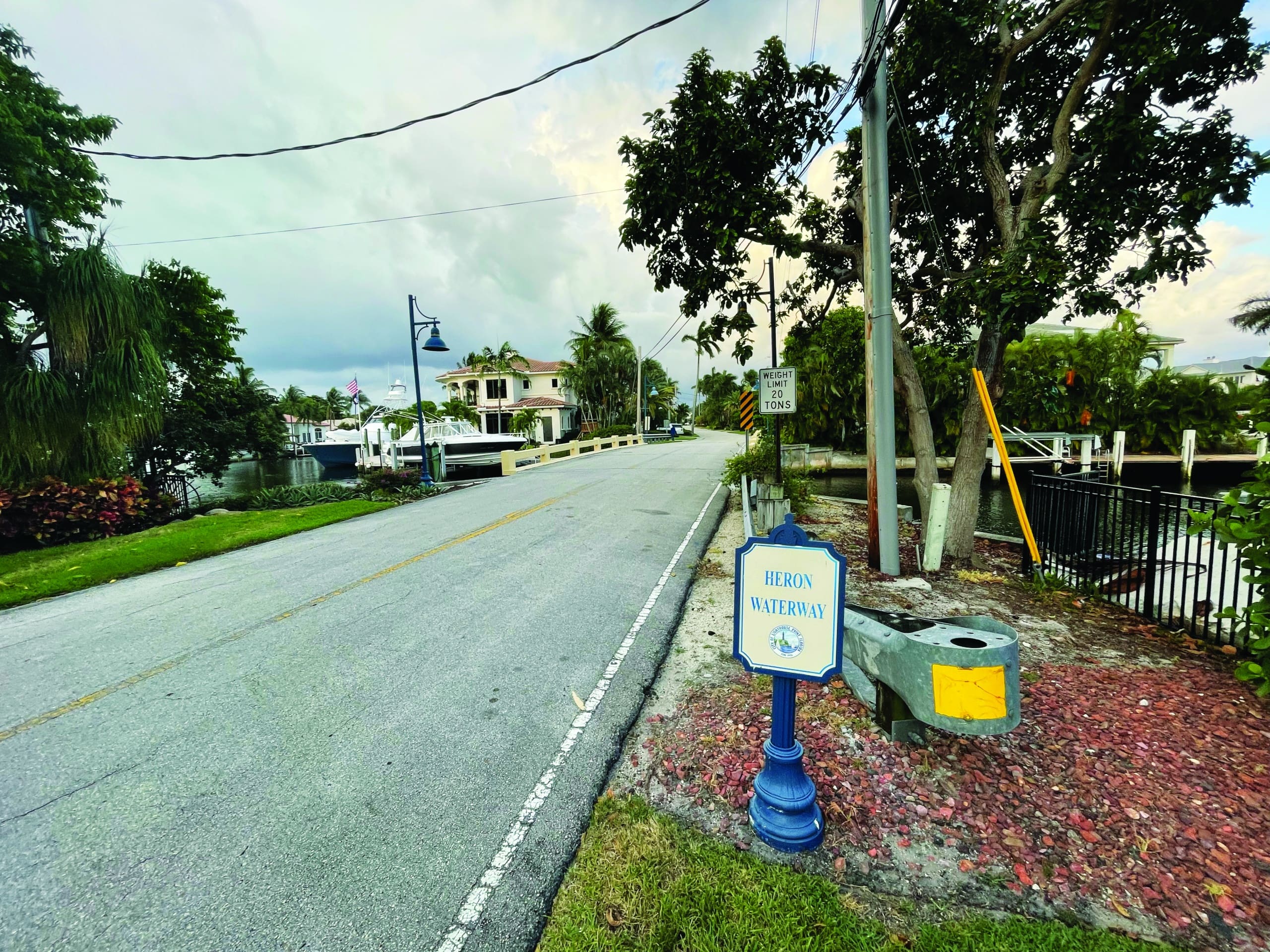
Seven city-owned bridges are undergoing inspections that are being carried out by Kimley-Horn and Associates, a consultant hired by the City, to assess the current structural condition of the bridges.
At its meeting on May 24, the City Commission approved a work order with Kimley-Horn in the amount of $67,230 for the bridge inspections. The work order was brought to the Commission by the city administration because, at a previous meeting, the Commission expressed a lack of confidence in the bridge inspections carried out bi-annually by the Florida Department of Transportation (FDOT).
The Commission referred to an FDOT inspection report for the Alamanda Bridge on NE 24th Ave. that gave the bridge an adequate health index of 70.97 in April 2021, and then one year later, a piece of concrete fell off the bridge, exposing a severely corroded and damaged beam. The bridge had to undergo emergency repairs.
The work order is for a field review of seven of Lighthouse Point’s 10 bridges. The Kingfisher Bridge and the Ibis Bridge, which were recently reconstructed, are not included. The Alamanda Bridge is also not included because Kimley-Horn is performing a comprehensive study of the Alamanda Bridge under a previous work order ($178,000).

The seven bridge inspections and the Alamanda Bridge study will be funded by the American Rescue Plan Act (ARPA), an economic stimulus bill enacted in March 2021 to help local governments in their ongoing recovery from the COVID-19 pandemic. The City of Lighthouse Point was allocated $5.64 million in ARPA funds.
Kimley-Horn will perform a visual and tactile review of the readily accessible elements of the seven bridges, as well as sound testing and underwater inspections. Any severe damage or corrosion will be brought to the City’s attention. The bridge inspections, which are just getting underway, are expected to take approximately 10 weeks to complete.
Some commissioners expressed concern that the inspections performed by Kimley-Horn might not be more in-depth than the inspections carried out by FDOT, and might not yield any new information that wasn’t already provided by FDOT, particularly since Kimley-Horn is using FDOT’s bridge inspection reports as a base.
The Commission decided to move forward with having Kimley-Horn do the bridge inspections in order to get “a second opinion” and “a different set of eyes on it.” The Commission hopes to gain a better understanding of which bridges need to be prioritized for replacement or repairs.
The project manager from Kimley-Horn told the Commission that his firm would bring a different perspective than FDOT by adding a layer of engineering judgment, including not just identifying issues, but how they can be fixed.

Another reason the Commission was in favor of having a bridge study from Kimley-Horn — in addition to the FDOT inspection reports — is because it could be helpful if the City seeks funding for bridge replacements or repairs.
“If it’s going to help us buttress our case for getting additional monies — be it federal, state, county — then I think it’s a good use of the ARPA money,” said Commission President Jason Joffe.
The City has two continuing contracts with Kimley-Horn: one for bridge consulting services, which it entered into in January; one for engineering and management consultant services, which it entered into in February. The City hired Kimley-Horn through a request for qualifications (RFQ) process, in which Kimley-Horn was ranked as the most qualified firm.
The City has work orders with Kimley-Horn for three other infrastructure projects that are being funded by ARPA: a stormwater master plan update, a seawall study, and a hydrographic survey of the city’s canals. These projects, which are currently underway, were among those prioritized by the City Commission in February for ARPA funding.
[elementor-template id=”13910″][elementor-template id=”13903″][elementor-template id=”13902″][elementor-template id=”13901″]
